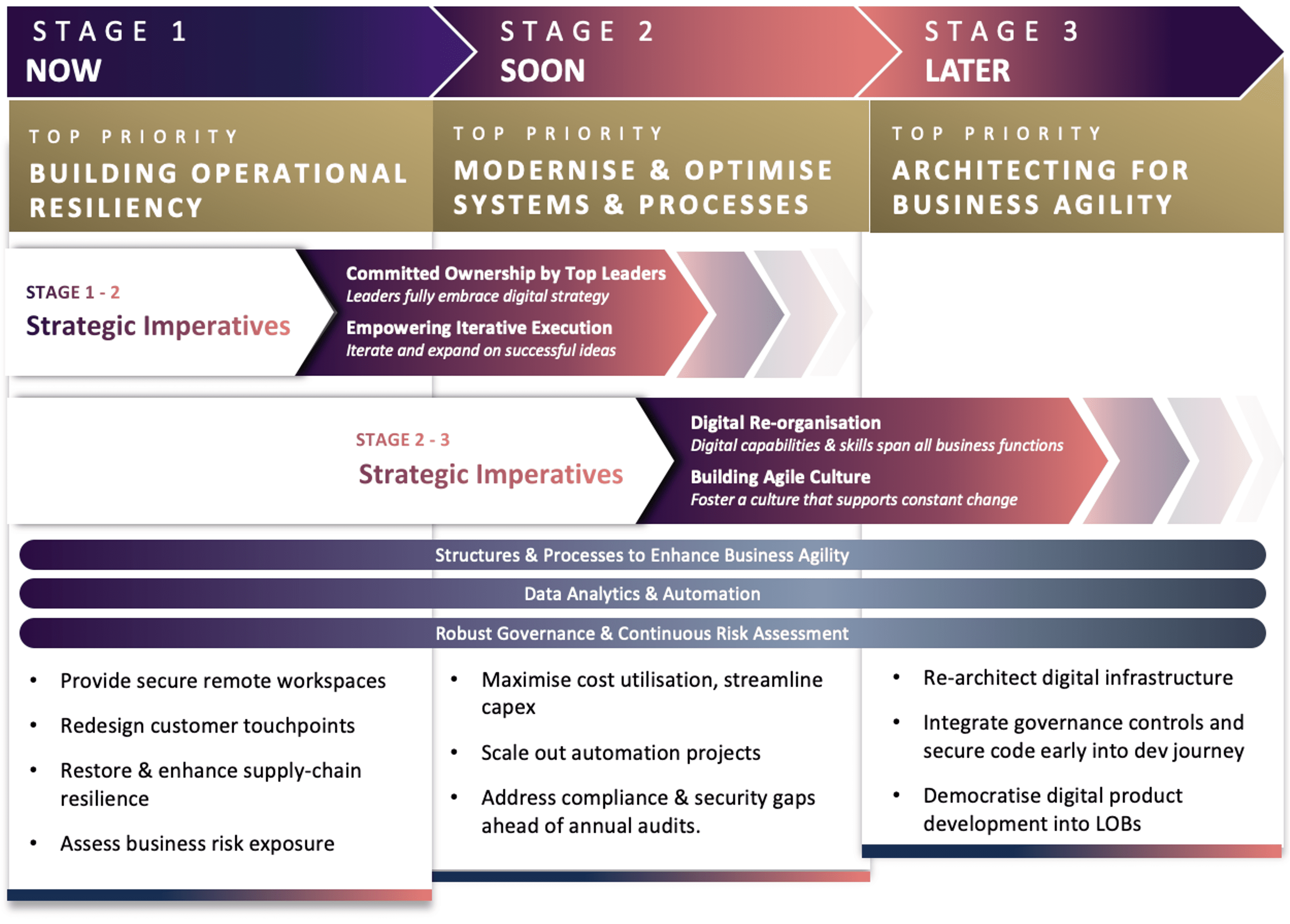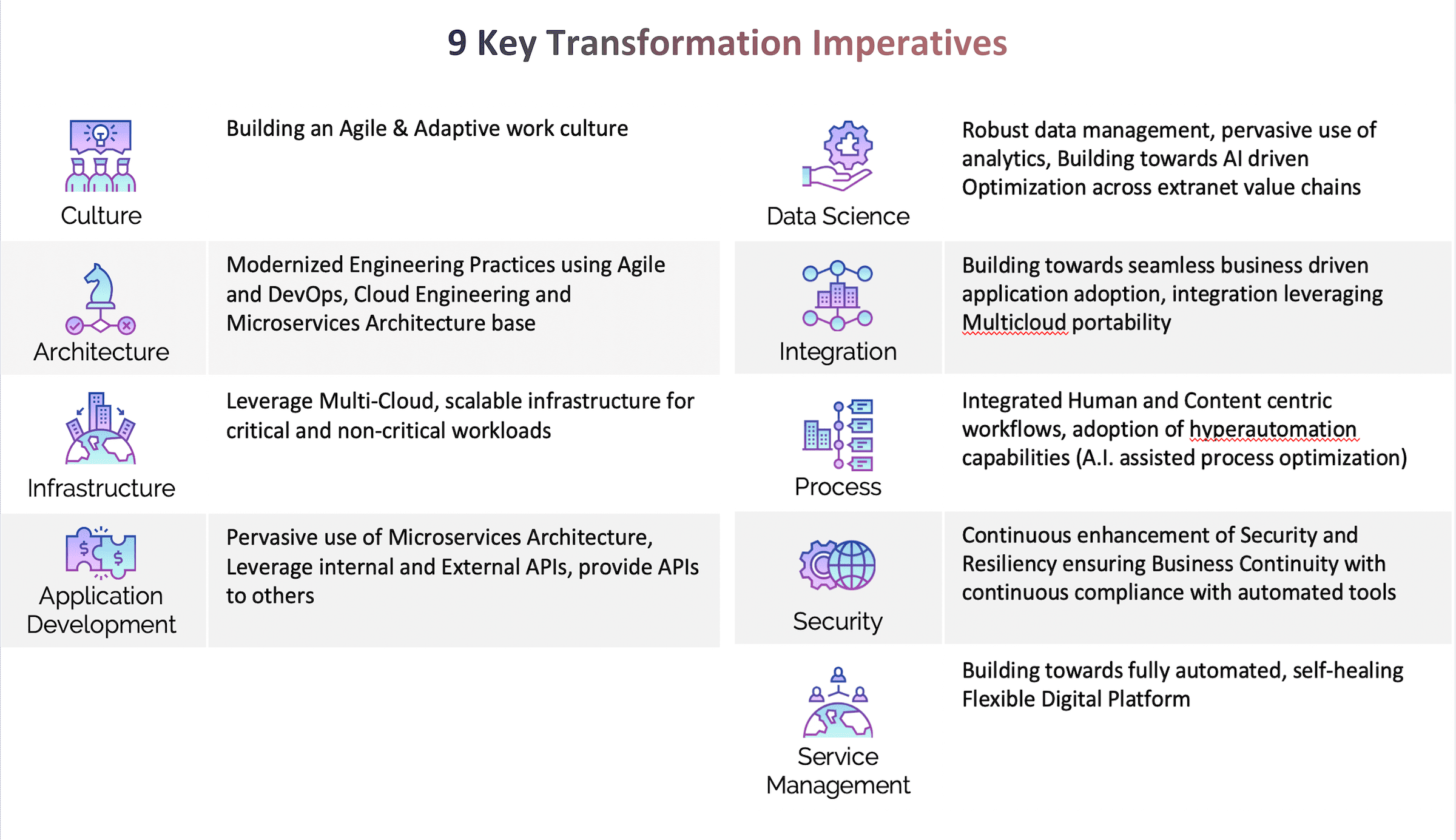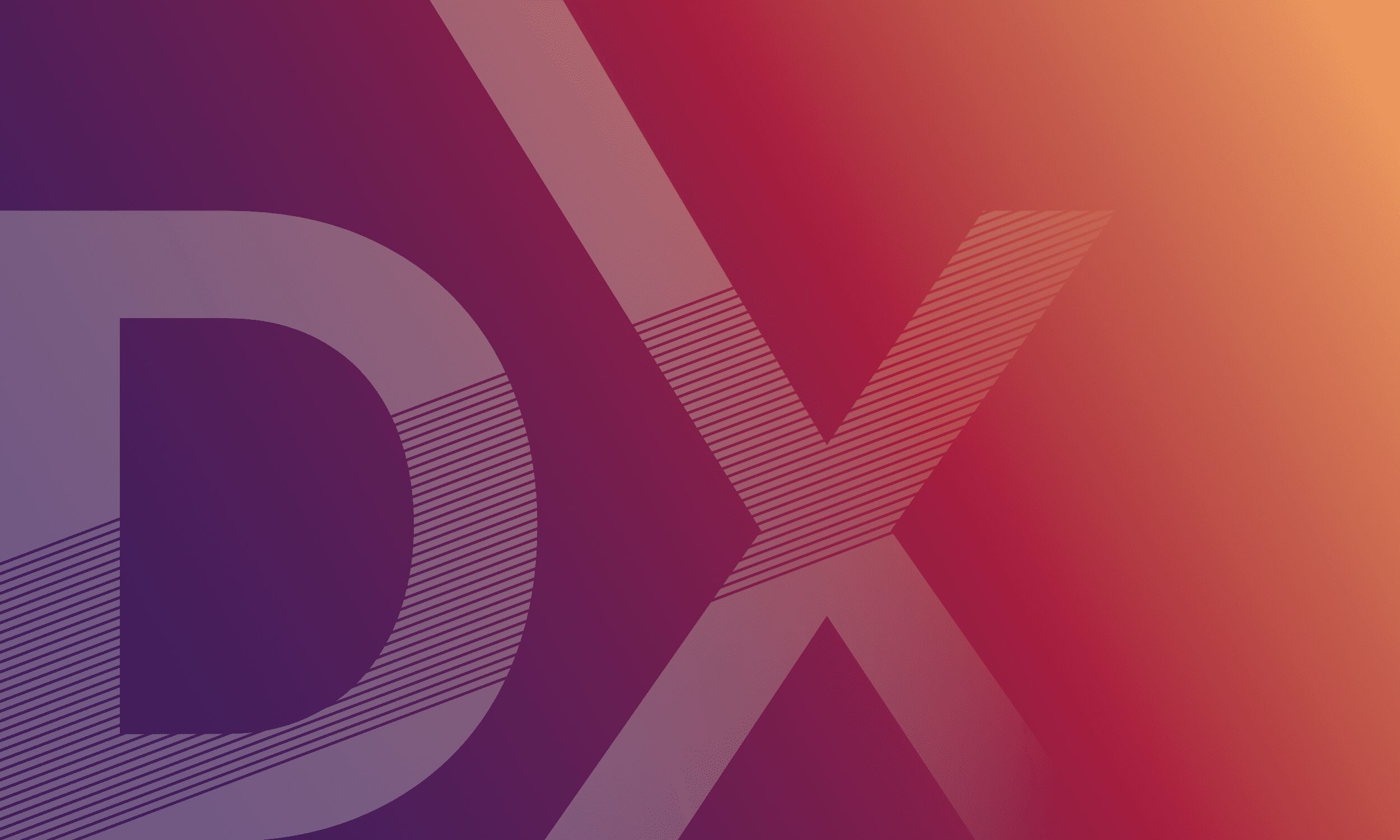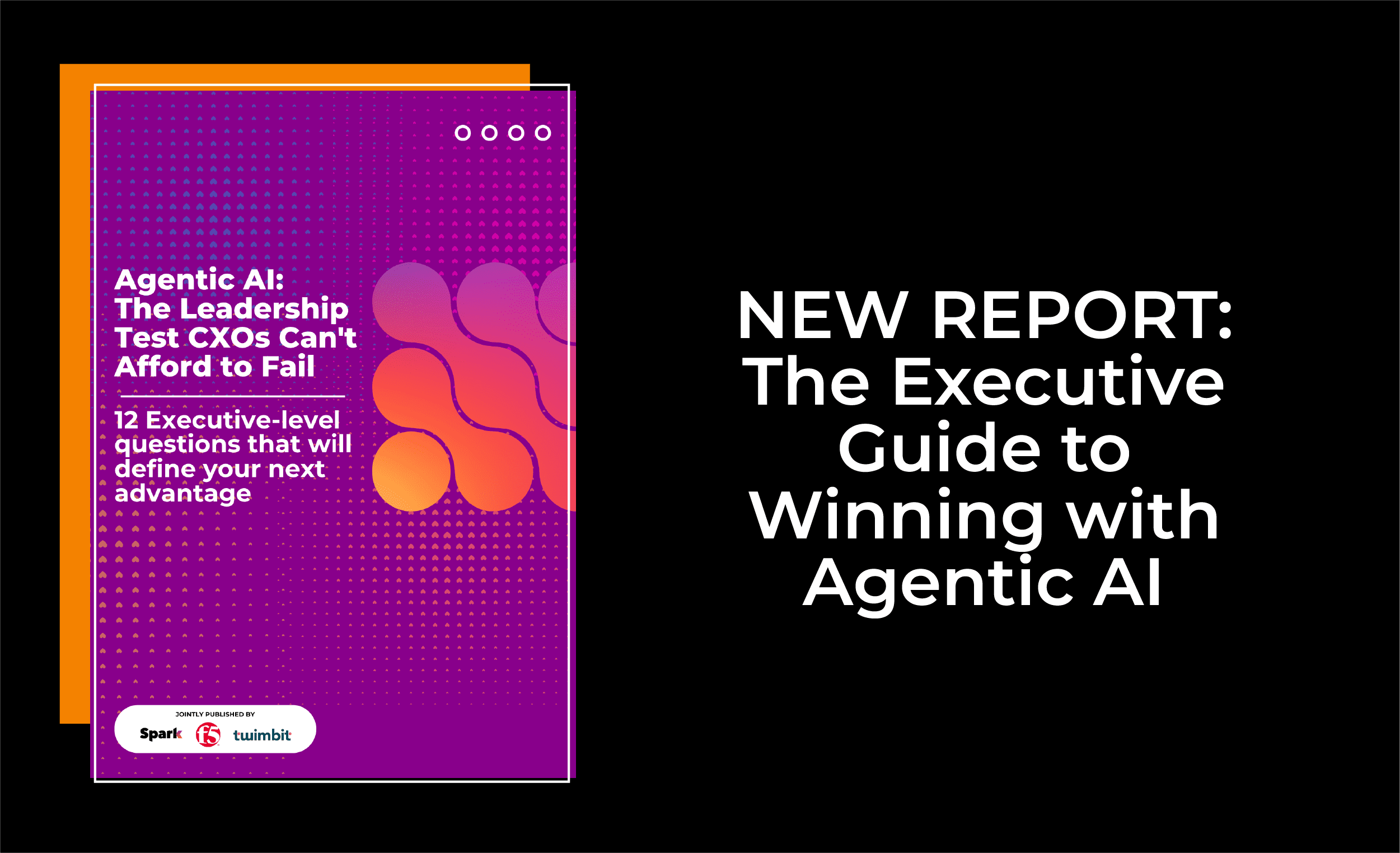CIO Academy Asia (CIOAA), a leading community-based platform of senior tech leaders in ASEAN, is pleased to announce the formation of its first ASEAN Digital Transformation Council (ADXC) for the term of 2020-21. CIOAA conducted it’s first council meeting on the 3rd of September 2020.
Framing the context of the Council discussions for 2020/21, Rama shared that the great pause brought by the once-in-a-lifetime global pandemic has reset not just traditional work practices and also every industry sector. The flip side to many of the economic challenges brought by the pandemic was the recognised and elevated importance of technology to help industries and economies recover. From merely paying lip service to Digital Transformation all these years, Boards and CEOs were now devoting their resources to digitalise their organisation, and moving from skeptics to believers in technology in order to survive the economic maelstrom.
CIOAA, together with IBM, had developed a Digital Transformation (DX) Framework to draw out clear learning outcomes from the ADXC (as shown below).

Summarising the three stage-model, Rama said that the organisations represented by the Council members might already be moving out of Stage 1 (Operational Resiliency in a remote work arrangement and supply chain management). Most organisations represented would be in either Stage 2 (Modernising Systems and Processes) or Stage 3 (Agility to win the competition) and it would be valuable to hear in greater details the journeys all were in in prevailing over the economic and health crises. In dissecting the nine pillars (Culture; Architecture; Infrastructure; App Development; Data Science; Integration; Process; Security; and Service Management) of the Framework, Rama emphasised that this was not a linear framework but their importance and criticality were circumstantial to each organisation’s developmental stage and culture.

Ng Chee Kin, Vice President & General Manager, Cloud & Cognitive Solution for IBM who participated as a technology expert, shared the results of a global customer survey IBM conducted during this Covid19 period. The key takeaways from the customer survey were that whilst safety of employees was topmost in senior executives’ priorities to survive this uncertain economic period, cost management was next in importance. In addition, most were moving beyond lip service to digitally transform their organisations to channelling resources behind these large-scale initiatives. Under pressure from having all their workforce and customers wanting to engage largely on an online basis, senior executives were having to develop new leadership instincts and muscles to navigate successfully through each stage of the DX Framework. Most were clearly on board the urgency of building a digital organisation and cultivating an agile culture to compete in this New Normal.
During the meeting, special guest – Tony Saldanha, former Vice-President for IT and Global Business Services at P&G and author of Why Digital Transformation Fail: The Execution Disciplines of How to Take Off and Stay Ahead dialled in from his home in Connecticut, US.
Tony echoed the sentiments expressed earlier that while business executives were adjusting to the unprecedented pandemic, this New Normal also represented great opportunities for digital and tech leaders. He shared that like all earlier crises, most executives’ responses were characterised by: scramble, sustain, streamline and supplant. He added that a Bain study conducted from the 2008 economic crisis revealed that companies that prospered in a turbulence did not just adopt a preserve profitability strategy but they shifted and adopted new business models to thrive in a post-crisis landscape.
Given the practitioner bent of the ADXC, Tony alerted Council members that the number one question they needed to answer in this period was — What is my organisational strategy to deal with all the dynamic changes brought by the 4th Industrial Revolution?
Painting the progress that AL/ML was making as faster than anticipated, Tony remarked that the accelerating pace of digital technology (e.g., deep learning could now read lips at more than 90% accuracy; small claims courts in China and Latvia were now manned by robots) demanded new strategies from all businesses and like it nor not, in order to thrive, all needed to invest in disrupting their own businesses. Digital Transformation could not just remain a buzzword, but should now represent an entire rewiring of organisation’s business model and the organisational capabilities within. He stressed that the role of a tech leader was to share use cases to senior management on how emerging technologies could elevate productivity or create next generation products and services. In Tony’s book Why Digital Transformations Fail, the Holy Grail for an organisation was to fully integrate digital into its systems and processes and be deeply rooted into the organisation.
The Council’s newly appointed chairman, Arvind Mathur, who’s also currently Chief Information Officer, AMEA at Kellogg, asked how tech leaders could help the other business units to weave digital into their own operations. Tony responded that much of that transformation work relied less on technology than changing mindsets. Transformation was 90% organisational change management and only 10% technology management. Of paramount importance was digital literacy of the workforce with the necessary reward systems to promote this learning culture. In addition, tech and digital leaders needed to be a coach to the senior management. At P&G, Tony would schedule regular visits for senior management to see the latest innovations coming out of Silicon Valley and helped them gain appreciation of the pace of change technology was enabling. To put simply, the traditional IT way would not work in the 4th IR environment and tech leaders needed to construct new strategies to help their organisations change in order to prosper.
The other council members echoed the views of Tony and the experts from CIOAA and IBM, citing challenges in talent acquisition, standards and policy harmonisation as well as a heightened awareness across the business that digital capabilities are now at the forefront of successful business transformation for greater resilience and profitability. The practitioners represented in the council took a practical and far-sighted approach on the adoption of exponential technologies within their organisations as part of their digital transformation journeys. One council member raised the example of the shift to the cloud. He emphasised that that the optic of cloud adoption needed to move away from cost alone to the more critical ability of agile to scale. Cloud was a catalyst to business agility and resiliency.
The council will convene regularly throughout the term to build on practitioner insights across several technology topics.








